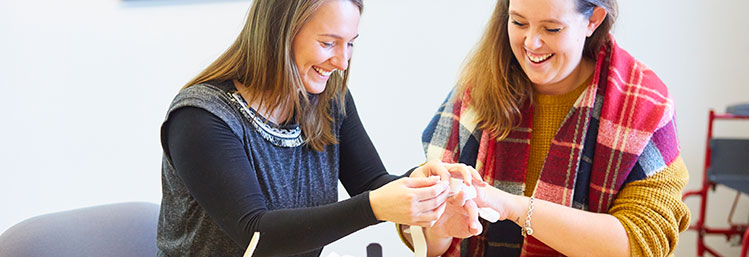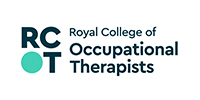
Occupational Therapy
BSc (Hons)
- Typical offer for 2025
- Duration
- UCAS code
Suitable for applications.
I work with service users who are experiencing an acute relapse in their mental health. My job is to ensure that they have a smooth transition back into the community & are engaging in a purposeful routine. My role is extremely stimulating - no two days are the same & I gain a lot of satisfaction from seeing the impact on people's lives. Bradford educated me on the importance of being a client-centred, competent practitioner, and I would recommend Bradford to anyone passionate about the wellbeing of others.
Placement Year
You will undertake five placement experiences across a range of clinical areas over the duration of the programme.
These increase incrementally from six weeks in the first year to ten weeks full-time in the final year.
Role Emerging Placement
The nine week placement will take place in a diverse practice setting, where there is minimal or no occupational therapy service. Placement locations are sourced for you by the Faculty, with the opportunity to complete 1080 hours of placement learning over the three years of the programme. Placement experience allows you to:
- experience real world clinical environments
- problem solve with real problems
- integrate theory into practice
- learn practical skills
- consolidate learning from modules
- begin to use reflection in and on action
- experience multi professional working
- develop your professional identity and communication skills
Placement experiences will reflect the diverse nature of the profession and also enable you to work with diverse populations and differing multi-disciplinary teams. The map illustrates the geographical area in which placements will occur.
Pre-placement lectures ensure you are prepared for each placement and each placement ends with a debrief session at the university to support your integration of theory and practice learning.
All placements are assessed with marks from placements in year two and three contributing to your overall degree classification.
Learning and assessment
The BSc (Hons) in Occupational Therapy uses a wide range of teaching and learning strategies that reflect the diversity of the student population and accommodate differing learning styles.
This approach seeks to facilitate the success of all students and the all-round development of competent occupational therapy practitioners, able to meet the learning outcomes for the programme.
The curriculum is focused on occupation and supports your application of theory into practice to develop your skills in addressing occupational limitations and enhancing performance.
You will be supported by the programme team and other University services to develop your academic skills following the period of transition into Higher Education and then throughout the programme. You will learn to think critically, and to use reflection and analysis to identify future learning needs.
Case-based scenarios are used to develop your clinical/professional reasoning skills. The inclusion of service users and carers within the learning and teaching experience will provide a person-centred perspective and further develop your understanding of the relationship between, health, wellbeing, occupation and occupational performance.
The programme team work in close alliance with local and regional stakeholders from a range of NHS, private, independent and voluntary organisations to ensure that the content of the programme is appropriate for your future professional career.


